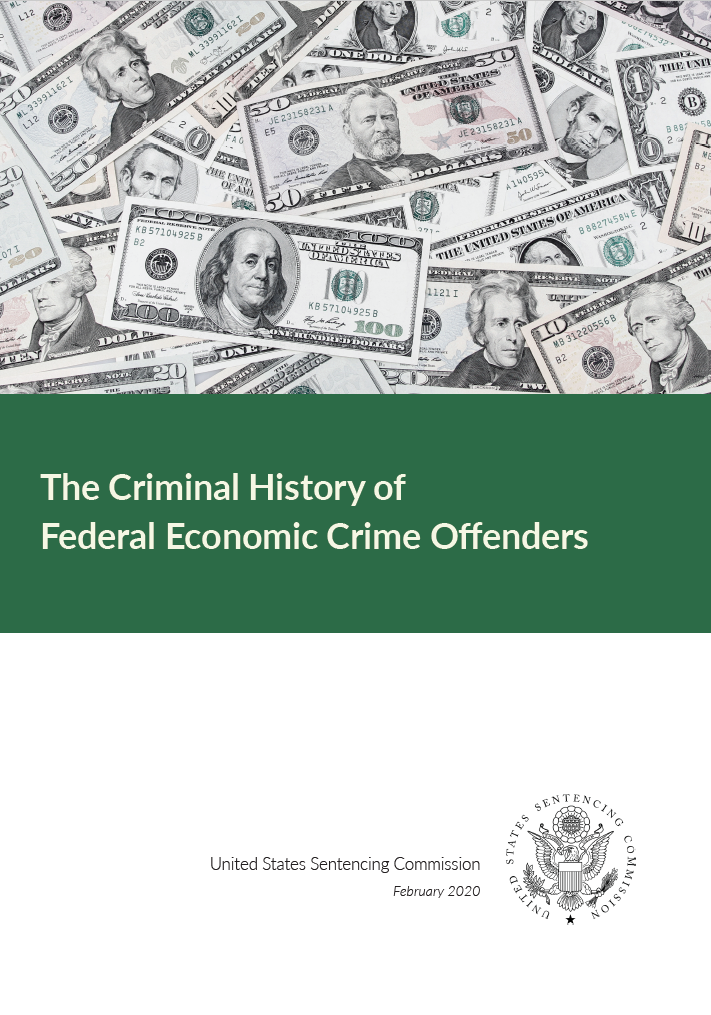Summary

- Full Report
- Figures & Tables
- Related Reports:
- What Does Federal Economic Crime Really Look Like? (January 2019)
- The Criminal History of Federal Offenders (May 2018)
Key Findings
-
The application of guideline criminal history provisions differed among the different types of economic crime offenders.
-
The extent of prior convictions differed among the different types of economic crime offenders.
-
About half of all federal economic crime offenders had at least one prior conviction in their criminal history.
-
Prior convictions were most common among counterfeit and forgery (71.1%), identity theft (70.4%), credit card fraud (68.7%), and financial institution fraud (68.6%) offenders.
-
Prior convictions were least common among computer-related (29.6%) and government procurement (25.4%) fraud offenders.
-
-
Federal economic crime offenders did not “specialize” in economic crime.
- Convictions for prior economic offenses were not the predominant types of prior convictions.
- Fourteen percent of federal economic crime offenders had convictions for prior economic offenses only, to the exclusion of other types of convictions.
- Convictions for prior “other” offenses, such as DUI and public order, were the predominant types of prior convictions.
-
The severity of criminal history differed for offenders in the specific types of economic crime.
- Financial institution fraud, credit card fraud, identity theft, mail-related fraud, and counterfeit and forgery offenders had relatively serious criminal histories compared to other economic crime offenders.
- Government procurement and computer-related fraud offenders had comparatively less serious criminal histories compared to other economic crime offenders.
- Only about one-quarter of federal economic crime offenders with prior convictions were not assigned criminal history points under the guidelines.
